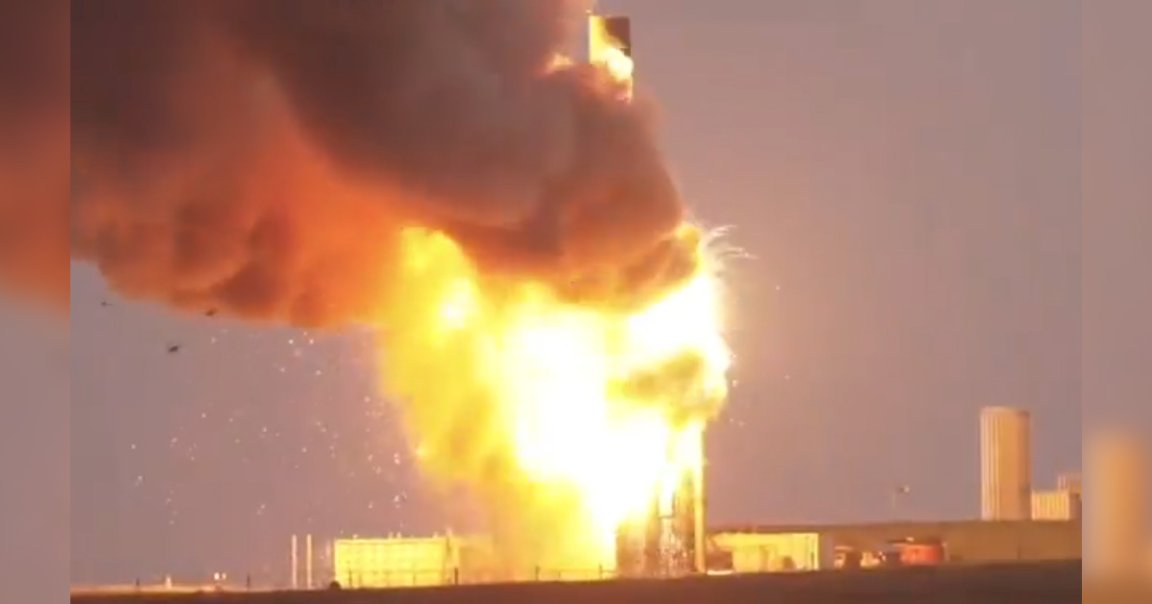
Trial by Fire
A rocket exploded this week during a test in the UK’s Shetland islands, resulting in a massive fireball that engulfed the entire launchpad.
No one was injured in the epic blaze, according to The BBC, which was set off during a round of testing for the German spacefaring company Rocket Factory Augsburg’s (RFA) vertical rocket, meaning it takes off from an upright position directly from a launchpad — a complex launch process that demands an immense amount of energy and power.
“We will take our time to analyze and assess the situation,” RFA told The New York Times, adding that the fire was caused by one of the space industry’s choicest euphemisms: an “anomaly.” SaxaVord Spaceport, the builder of the launch structure, told the BBC that “this was a test, and test campaigns are designed to identify issues prior to the next stage.”
“We will work with RFA to understand and learn from the causes,” SaxaVord added, “and support them as they move forward to the next phase of their preparations.”
If RFA is ultimately successful in building its rocket, its launch would be the first vertical rocket launch in European history, according to the BBC. Judging by the massive fireball, however, the rocket company might still have a ways to go.
Drawing Board
Per the BBC, SaxaVord hasn’t been operating for very long, having been first approved for orbital launches by the UK’s Civil Aviation Authority (CAA) as recently as December 2023. And unfortunately for a few other spacefaring hopefuls, RFA wasn’t the launchpad operator’s only client; European rocketmakers HyImpulse and Skyrora were both slated to use the port, as was a German offshoot of Lockheed Martin dubbed ABL Space Systems (although the latter was due to use the launchpad to send smaller payloads into orbit, not test rockets.)
The CAA, for its part, is defending RFA and SaxaVord. In a statement posted to X-formerly-Twitter, the governing body wrote that “advancing space technology is complex” and “tests like the one at SaxaVord are essential to achieve future success.”
“Incidents like this are anticipated by operators and the regulations,” the CAA added.
At the end of the day, though expensive and destructive, this kind of stuff does happen pretty frequently in spaceflight, especially during earlier testing rounds. We’re glad no one’s hurt, and hey — at least the mistake happened down on the ground.
More on rockets exploding: Spacex Rocket Suffers Catastrophic Failure, Explodes While Deploying Satellites